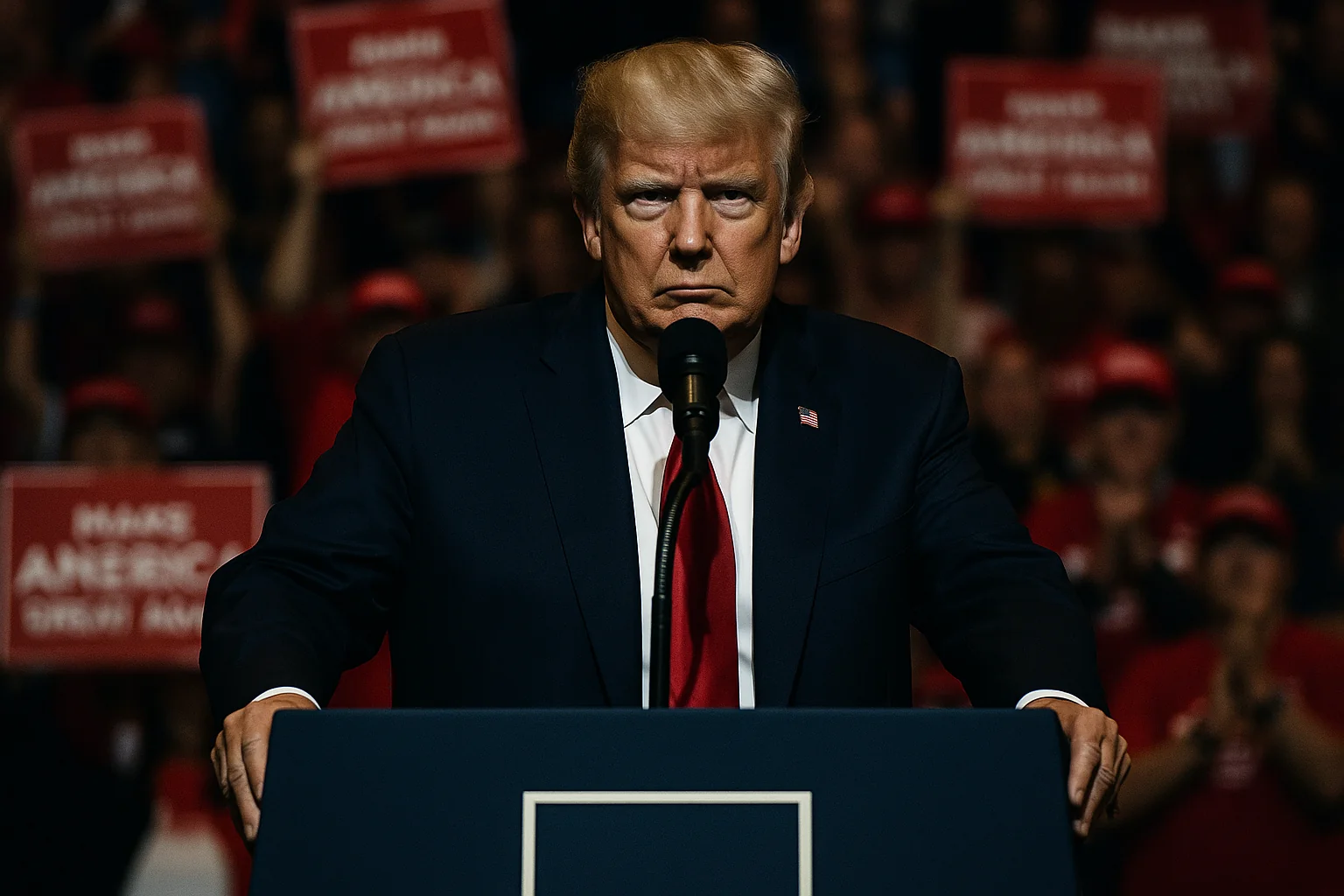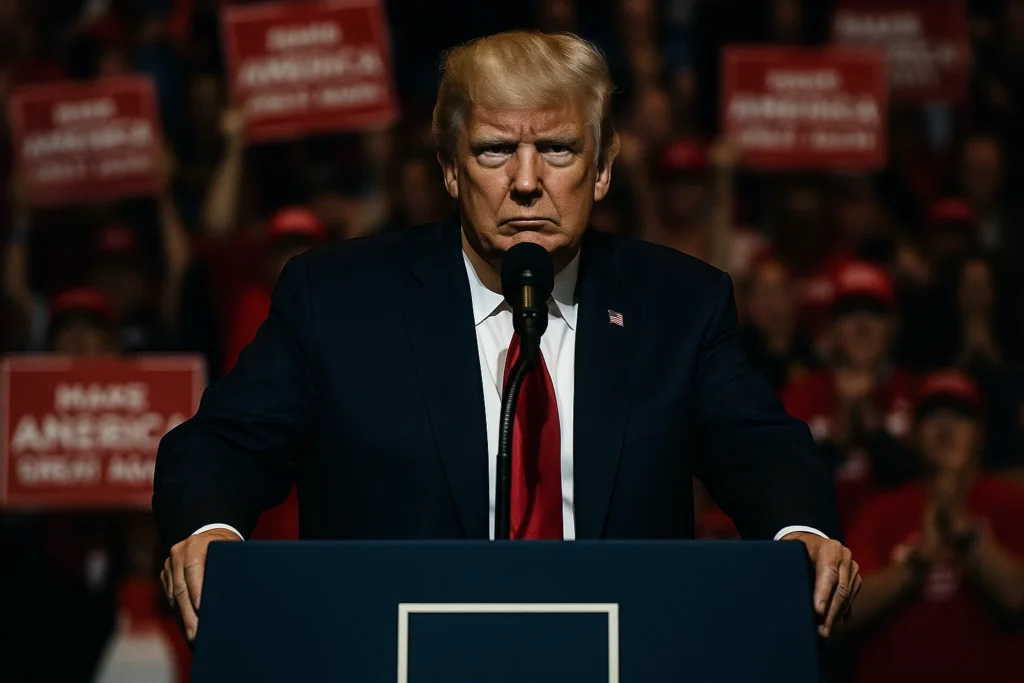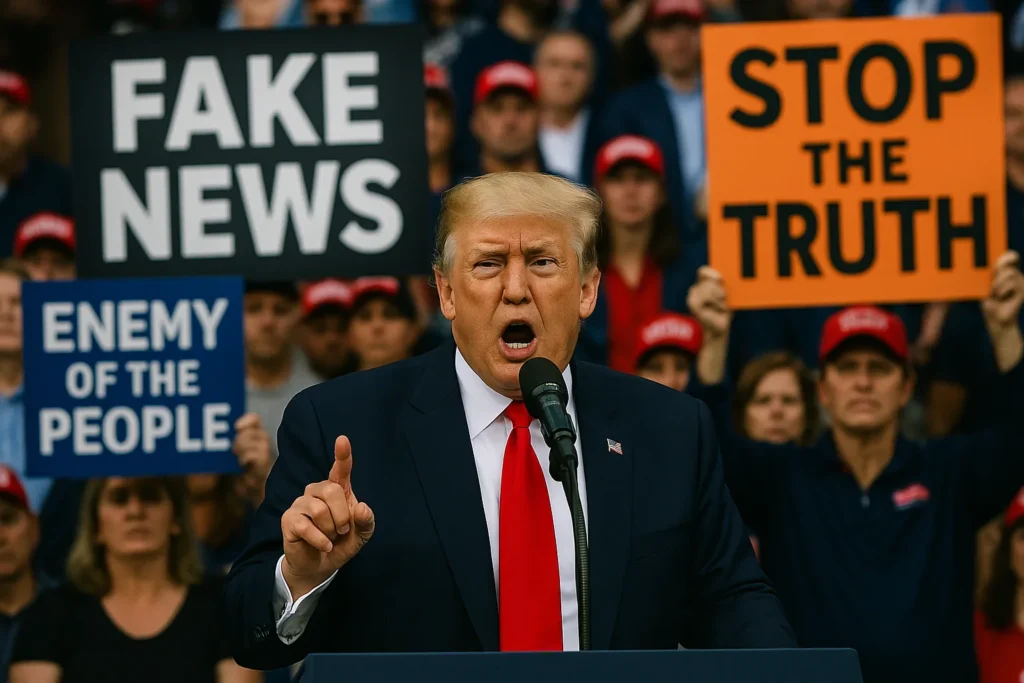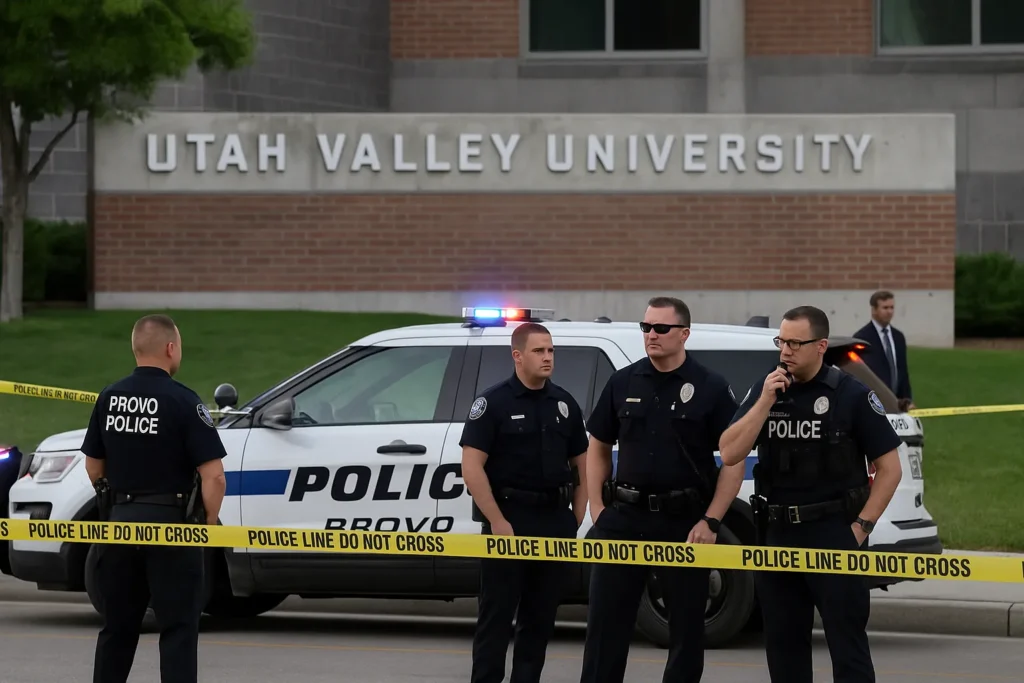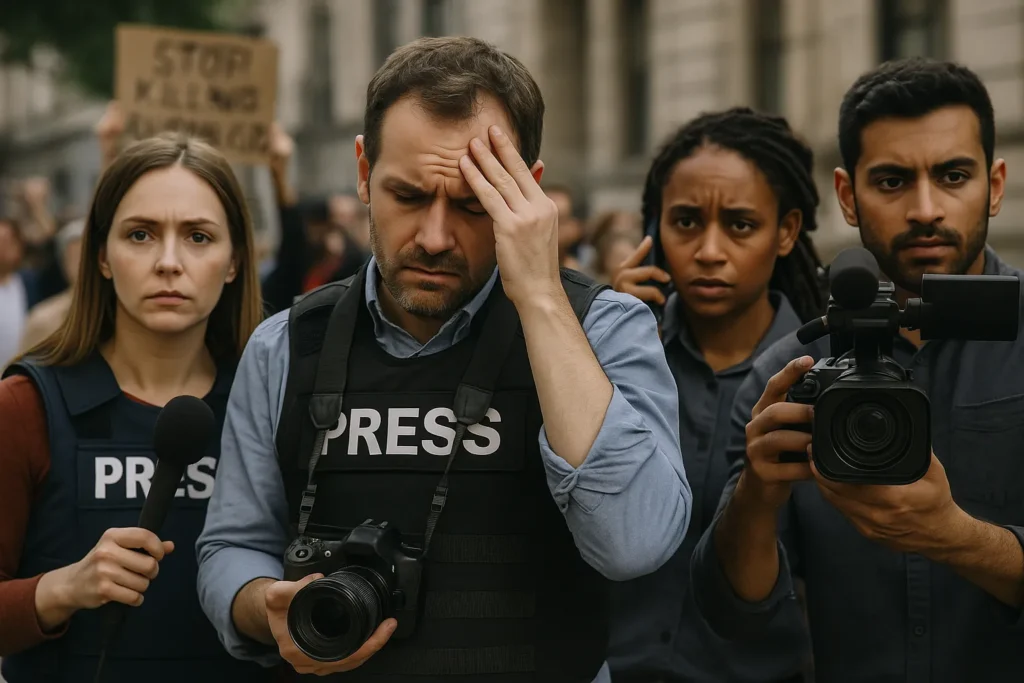The Don in the Oval Office
There’s a reason Donald Trump reminds his critics of a mafia don — and it’s not just the rhetoric. His method of control, from public humiliation to quiet intimidation, follows the logic of organized power: enforce loyalty through fear, demand silence through dependency, and punish betrayal with spectacle.
Every political system has its strongmen, but Trump’s style represents something uniquely American — a fusion of entertainment and coercion. He doesn’t need to silence his opponents through violence. He does it through performance, by turning politics into a loyalty test. When Trump targets someone — whether it’s James Comey, Chris Christie, or a federal judge — he’s not just settling scores. He’s sending a message: loyalty is currency, and disloyalty is treason.
Loyalty as Obedience
In Trump’s world, loyalty isn’t mutual; it’s servitude. Those who serve are rewarded not with trust, but with temporary protection. His allies understand the unspoken code: stay useful or be replaced. Like a mob boss, he prizes personal devotion over institutional duty.
The power of this approach lies in its simplicity. Trump turns political allies into lieutenants and opponents into enemies of the family. He doesn’t build coalitions; he builds crews. Each public feud — whether over a campaign endorsement or a criminal trial — is an initiation ritual that forces everyone to choose sides.
Republican leaders who once swore to defend the Constitution now defend Trump himself. They rationalize it as strategy, but it’s submission by another name. Fear of exile, fear of mockery, fear of political death — it keeps them in line.
The Theater of Fear
Trump’s greatest weapon has always been spectacle. He understands that in the age of media saturation, perception is power. He doesn’t hide his threats; he broadcasts them. Every insult, every nickname, every rally tirade serves a function: to publicly mark those who cross him.
This is not chaos — it’s choreography. A mafia don operates through ritual. Trump operates through repetition. Rallies under Trump aren’t political events — they’re loyalty ceremonies. On social media, his “jokes” double as warnings. In court, he turns appearances into stage plays, casting himself as both victim and avenger.
The audience, of course, is complicit. Millions watch because they crave the drama, not the justice. Trump weaponizes their attention the same way a mob boss weaponizes silence.
America’s Addiction to the Strongman
Trump’s rise exposed more than his own psychology — it revealed America’s. A culture obsessed with dominance mistook intimidation for leadership. The public doesn’t just tolerate his bullying; it admires it. The same country that worships mob movies now elects their protagonist.
The parallels are painful. The “deal-making” persona, the obsession with betrayal, the demand for absolute loyalty — these are the same traits that define criminal hierarchies. The difference is that Trump has replaced guns with microphones.
When a democracy starts rewarding fear instead of truth, its institutions begin to mimic the behavior of the people they’re supposed to restrain. That’s why Trump’s influence lingers even out of office. His playbook has become political currency — imitated by governors, candidates, and media figures who have learned that intimidation pays better than integrity.
The Culture of Silence
One of the mafia’s oldest rules is omertà — the code of silence. Trump has his own version. Every ally who stays quiet about his misdeeds earns favor; every defector is branded a traitor. The Justice Department’s pursuit of accountability becomes, in his narrative, a vendetta. The courts become enemies. Truth becomes an inconvenience.
Even those who see through him remain cautious. Journalists fear losing access. Donors fear losing influence. Politicians fear losing votes. And so the silence continues — not because people believe him, but because they fear the chaos that follows when they don’t.
The tragedy is that this silence isn’t imposed by force. It’s voluntary. It’s the silence of exhaustion, the apathy that lets power rot unchecked.
Breaking the Spell
If there’s one lesson from history’s strongmen, it’s that they thrive on attention and decay in its absence. Trump’s authority depends on visibility. His every outrage becomes oxygen. The only antidote is resistance through indifference — denying him the spectacle he feeds on.
But America is not built for indifference. It’s built for spectacle. And that’s why Trump’s mafia-style politics continues to thrive — because it satisfies both fear and fascination.
The danger is not that Trump behaves like a mob boss. It’s that America keeps treating him like one — with awe, caution, and quiet respect. Until that spell is broken, his shadow will loom over every courtroom, every campaign, and every headline that can’t stop repeating his name.
External Links
• The New York Times – There’s a Reason Trump Reminds His Targets of a Mafia Don
• Politico – Trump’s loyalty tests reshape the Republican Party
76 views
